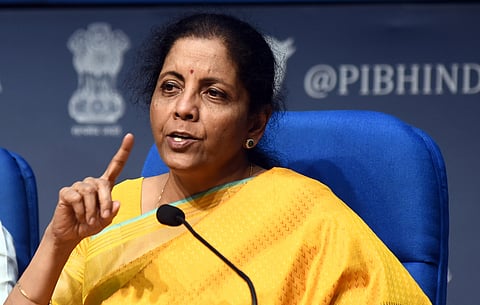

NEW DELHI: In moves reminiscent of the pre-1991 India, the government has not only hiked import duties on a wide range of goods ranging from toys to mobile phone parts but has also brought in changes in the Customs Act 1962, to allow it to ban the import or export of virtually any good.
Since liberalisation, this power had been restricted only to export and import of gold and silver.
Besides, the Customs Tariff Act 1975 is being amended, giving the government power to restrict imports by setting quotas and by slapping safeguard duties with greater ease. “
We seem to be returning to the pre- 1991 days,” said M Govinda Rao, a former member of the PM’s Economic Advisory Council.
Officials said these extraordinary measures including possible bans would be resorted to in case of a spike in imports.
To make matters worse for importers, the procedure for claiming preferential tariff rates under trade pacts that India has entered into with Asean, Korea and other countries has been made complicated with importers having to give declarations along with certificates of origin and being held responsible in case it was proven that the imported good did not meet India’s criteria of 40 per cent of the product being made in the country of origin.
“The whole set of measures is retrograde … we are going back to the days when we were autarkic and hardly did any trade with anyone. Slapping blanket bans if there is a spike in imports is bad for businesses, it brings in policy uncertainity, raises costs,” said Biswajit Dhar of JNU and former head, Centre for WTO Studies, Indian Institute of Foreign Trade.
Analysts say the duties slapped on components will mean manufacturing sectors will be hit with higher prices. While hiking duties in goods will make Indian producers uncompetitive globally, even as it hikes prices for consumers.
A hike in duty on imported toys from 20 to 60 per cent, has seen toy-sellers declaring a strike.
“What those who are making these rules do not realise is that the world of trade in the 21st century is different from that in the last century. No nation is an island, every country is now part of a global value chain and we need to allow cheaper imports if we want industry and consumers to benefit from this chain,” said Dhar.
A World Bank study said that one per cent rise in GVC participation is estimated to boost per capita income by over 1 per cent.
Preferential tariff rates are complicated The procedure for claiming preferential tariff rates under trade pacts that India has entered into with ASEAN nations, Korea and other countries has now been made complicated.